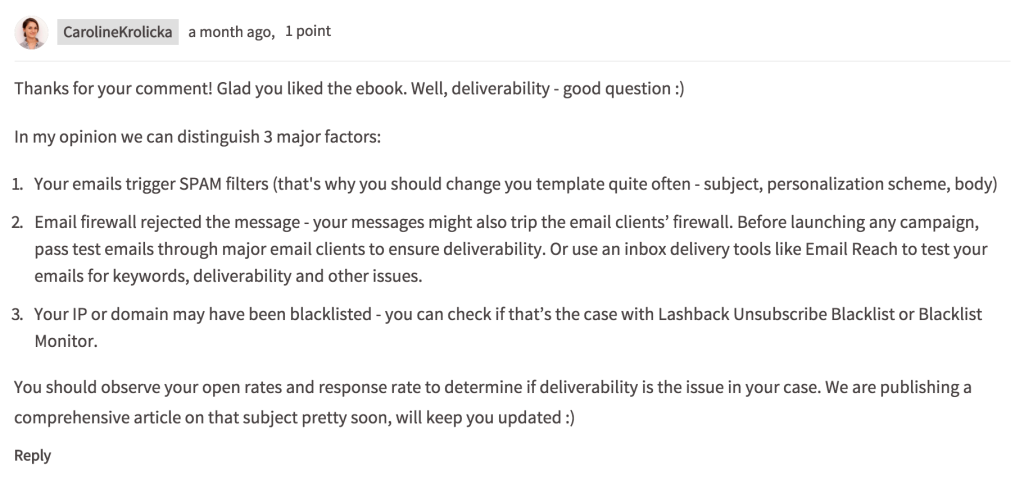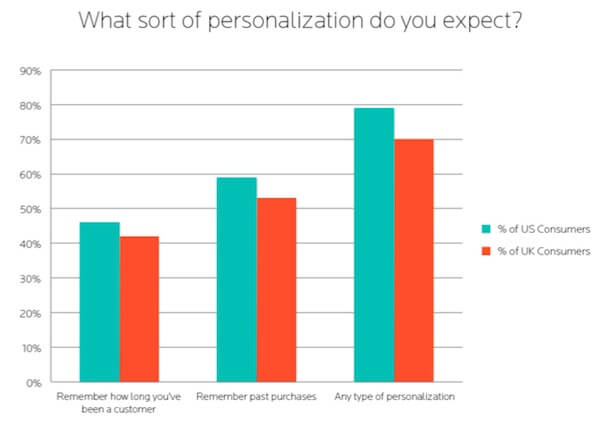While most companies stick to catering to the masses, specialized businesses are cornering the market by selling unique products and services to targeted consumers.
To compete with mass retailers, niche stores must build up their presence within their specific communities.
For example, eCommerce store Beardbrand only sells beard care products, ranging from natural beard oil to mustache wax. For their business, it was a necessity to build up strong relationships within their community.
That’s why creating a solid eCommerce marketing strategy built for niche stores is important.
Here are 5 ways your niche store can elevate its eCommerce marketing strategy:
Answer Questions on Industry-specific Websites
The first step in creating a marketing strategy for your niche brand is to build relationships with your customers.
One tried-and-true way of doing this is by answering relevant industry questions.
Research 5-10 industry-specific forums and start giving away free knowledge. If it fits your market, try offering solutions on Quora and Yahoo! Answers.
People want helpful advice. So, avoid vague responses; they won’t spark conversations or entice people to learn more about your company.
Here’s an example from ClosingCall.io, a community forum for salespeople. Growbots’ Content Marketing Manager Caroline Krolicka gives a detailed response to a commenter.

When you offer actionable suggestions, customers will come to you as a trusted source of information.
Your team also can create a running list of FAQs for your customers. Just make sure it’s updated often and easily accessible.
“Answering questions in public forces you to (really) think.” – Alex Turnbull, CEO and founder of Groove
It compels your team to represent the brand from a place of value, instead of always selling.
The result?
Your customers receive awesome responses, and your company gets a jolt of brand awareness.
Get Customer Feedback Early and Often
Any eCommerce marketing strategy must prioritize customer feedback.
Customer feedback adds purpose to your brand. To serve your customers the right way, listen to them.
Their honest opinions will help you make better business decisions. Let them express how awesome your delivery service is and how awful the checkout process is.
Two great feedback sources include customer reviews and social media.
Search through the user-generated content and do some social listening.
The best constructive criticism comes from unsatisfied customers. They are not 100% in your favor and will give you the truth.
Consumer feedback helps increase customer satisfaction and reduce churn. It builds trustworthy relationships, while showing your brand’s desire to improve.
So, keep the lines of communication open. Give your customers the space to be the experts.
“Always make users feel comfortable with what they’re trying to say.” – Des Traynor, co-founder of Intercom
If you want lifetime revenue, develop lifetime relationships through customer feedback.
Personalize the Shopping Experience
eCommerce offers businesses the opportunity to make shopping unique. Consumers want to feel special. So, offer one-of-a-kind experiences.
A survey conducted by AgilOne found that more than 70% of consumers expect personalized experiences with the brands they interact with. Plus, consumers want you to remember their past purchases and expect you to know how long they’ve been a customer.

Use customer data to learn their individual preferences. Segment your customers based on your specific services. Then, tailor to their needs by generating a targeted product selection and shopping experience.
Niche stores should also build a marketing strategy that capitalizes on their exclusivity. Offer promotions to entice consumers to join special programs for VIP treatment. Anything from first dibs on services to one-day discounts will keep consumers engaged.
Send Samples to Niche Bloggers
With the boom of social media, influential bloggers, journalists, and vloggers are taking center stage. They possess large followings and loyal fans who value their opinions.
Do your research and identify niche bloggers who engage with your target audience.
Then, let them know how much you appreciate their work. Send them a small gift, like a swag bag with free samples of your products.
If appropriate, ask for a product review or a Twitter mention.
With this marketing strategy, be very selective. Expenses for products and shipping will add up quickly.
And understand that sending samples isn’t a quick marketing fix. Not every blogger you pitch will lead to 20 new customers.
The key is to bring customer awareness to your brand. Besides an increase in website traffic, you’ll raise your status in the eyes of potential consumers.
Create a Lifestyle Culture Around Your Brand
Connect your brand to a way of life. Consumers want to know that you understand them‐everything from their failures to successes.
Show deep compassion for their needs and respect their life experiences. In other words, represent who they are.
Appeal to your target audience’s personality.
For example, are you serving tech-savvy lawyers? If so, create content that reflects the buyer’s particular lifestyle. What unique challenges do they face? How do they have fun?
This could mean developing a comprehensive guide, video tutorials, or even an Instagram campaign. The specifics will depend on your niche market.
These resources will elevate your company as a brand expert. And with more expertise comes an increase in consumer loyalty.

Take a lesson from Nike. It began its journey as an athletic brand. Now, the company sells clothes, shoes, and other accessories to people who don’t even play sports.
Learn to identify with your consumer. Then, sell your brand as a solution to their lifestyle needs.
Conclusion: Target Your Marketing
Niche stores provide customers with the opportunity to find the best-individualized products and services.
To acquire and retain those customers, businesses must create a similar eCommerce marketing strategy.
From listening to customer feedback to creating a lifestyle brand, niche stores can transform how they build their online communities.



